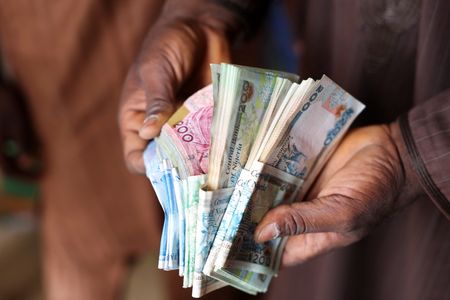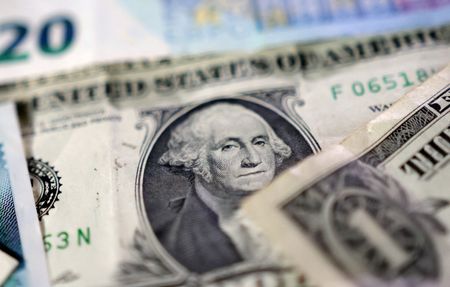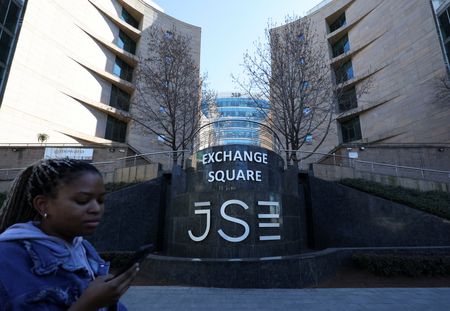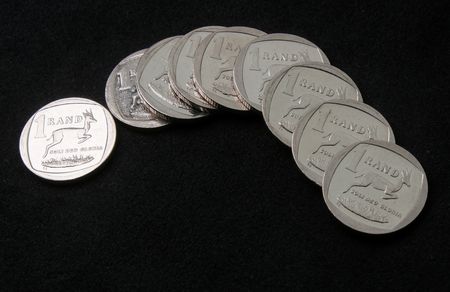By Elizabeth Howcroft
PARIS (Reuters) -European stocks opened lower on Thursday, in a move driven by banking shares, while investors weighed up the risk of a market correction after AI-enthusiasm helped Asian stocks reach new highs overnight.
Wall Street hit fresh record highs in the previous session, as investors bet on gains in technology stocks, despite a U.S. government shutdown leaving traders without some key economic data.
The U.S. shutdown and political risk in Japan and France have made investors nervous this week, creating safe-haven demand which, along with a weaker dollar, has driven gold above $4,000 for the first time.
STOXX DOWN 0.3% ON THE DAY
The STOXX 600 was down 0.3% on the day at 0903 GMT and London’s FTSE 100 was down 0.3%, hit by losses at HSBC and Lloyds Banking Group but partially offset by gains in mining and technology stocks.
The MSCI World Equity Index was flat on the day.
“It just feels like the mood is a little bit fragile,” said Fiona Cincotta, senior market analyst at City Index.
“It does feel that we’re lacking substance to any move that we’re seeing, because we’re not getting that data out of the U.S.”
In a sign of rising caution among investors, JPMorgan Chase CEO Jamie Dimon said there was a heightened risk of a significant correction in the U.S. stock market within the next six months to two years, citing factors including geopolitical tensions, government spending and remilitarization around the world.
U.S. President Donald Trump announced late on Wednesday that Israel and Hamas had reached a ceasefire and hostage deal.
French bonds held on to Wednesday’s gains after President Emmanuel Macron said that he would name a new prime minister by Friday evening, which raised hopes that the country could avoid a snap election and agree a budget.
The 10-year French government bond yield was at 3.5082%, while the benchmark German 10-year yield was 2.692%.
The dollar index made small gains, up 0.1% on the day at 99.971, but still down around 8.9% on the year overall. The euro was in its fourth day of declines, down 0.1% at $1.1615.
The Japanese yen hit an eight-month low of 153 per dollar overnight, but was last a touch stronger at 152.76.
An economist advising the policy circle of Japan’s likely new premier Sanae Takaichi told Reuters that the yen’s current weakness benefits the economy, and the hit to households from rising import costs can be offset by aggressive fiscal spending.
Oil prices were steady, as traders waited to see if the ceasefire and hostage deal between Israel and Hamas would hold.
Gold was little changed, at $4,041.29.
International Monetary Fund Managing Director Kristalina Georgieva on Wednesday forecast a slight slowdown in global growth in 2025 and 2026, warning investors not to get too comfortable, but said the world economy has proven more resilient than expected.
China tightened its export controls of rare earth technology, expanding April’s restrictions.
(Reporting by Elizabeth Howcroft, editing by Ed Osmond)











